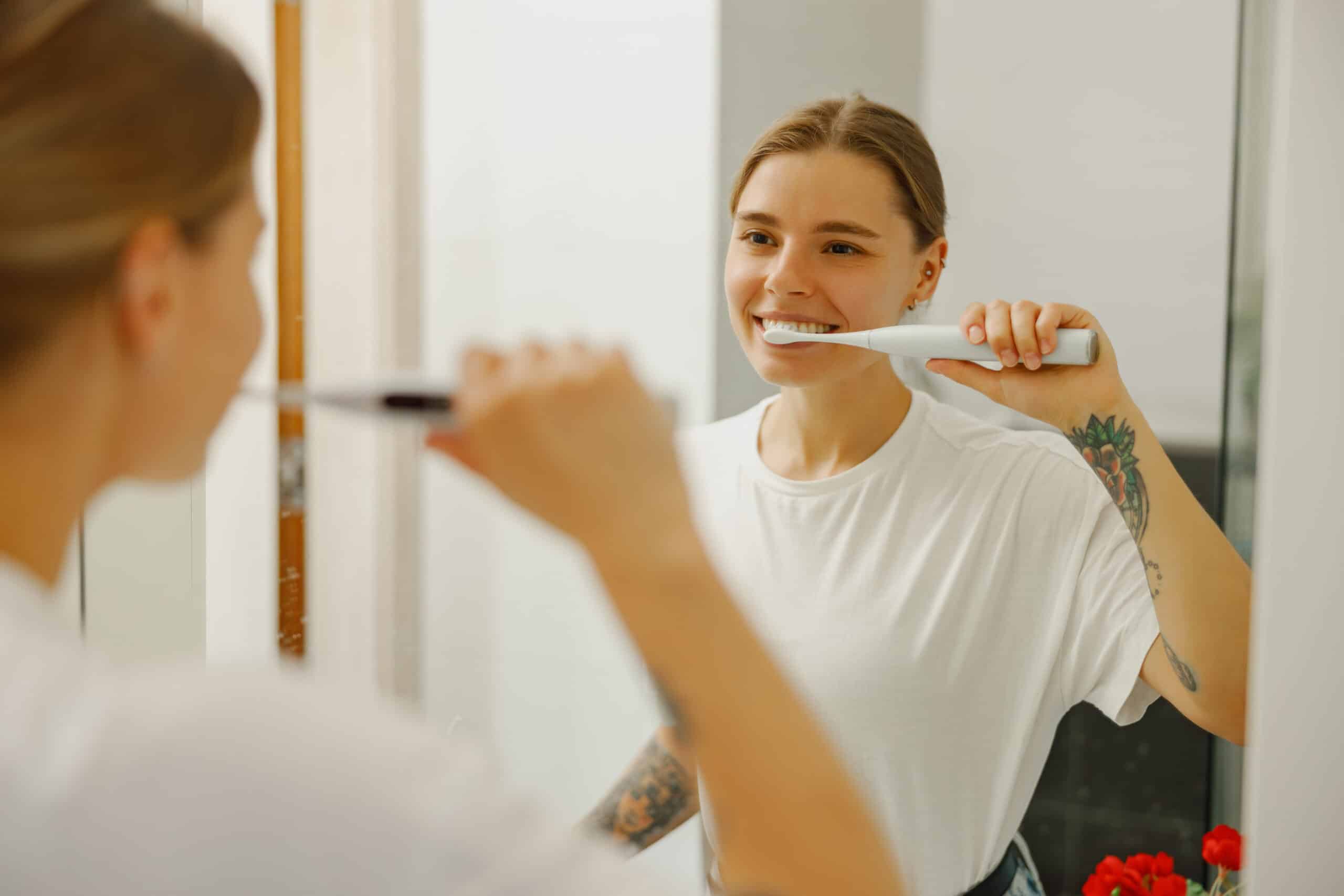- The best foods for optimal oral health
- Foods to avoid for healthy teeth and gums
- Promoting healthy teeth during and after eating
When we were young, we were always told, “You are what you eat.” In other words, if we eat healthy, we are going to be healthy.
Many people equate good health with having lots of energy, optimal weight management, and avoiding illnesses such as the flu or the common cold. However, eating well can also improve your oral health, helping you maintain strong teeth and gums and giving you a bright, beautiful smile you can be proud of.
The best foods for optimal oral health
What’s good for your body is also good for your teeth. The best diet for oral health contains options rich in essential nutrients that your body needs to function properly. These foods are especially critical for children to help their primary teeth develop healthy and strong, setting the foundation for good nutritional habits they will take throughout their lives.
The best foods for optimal oral health contain these beneficial nutrients:
Calcium
Calcium plays a critical role in strengthening tooth enamel against cavities and helping maintain bone density in the jaw so the teeth stay firmly in place. Excellent sources of calcium include milk, cheese, yogurt, and other dairy products, as well as leafy greens such as spinach, broccoli, kale, and edamame.
Vitamin A
Our gums are coated with a sensitive mucous membrane that helps reduce our risk of infection, which can lead to oral health problems. Vitamin A is essential to keeping this membrane healthy and strong. Foods high in Vitamin A include carrots, pumpkins, apricots, sweet potatoes, squash, kale, spinach, egg yolks, fish, and liver.
Vitamin C
This antioxidant helps strengthen the connective tissues that keep teeth in place and helps ward off gum disease. Although citrus fruits are good sources of vitamin C, it’s important to only eat them in moderation. They also contain acids that may damage teeth if you do not follow a regular oral hygiene program that includes rinsing, brushing, and flossing.
Vitamin D
This mineral promotes calcium absorption, supporting teeth and bone health. Egg yolks, soft margarine, low-fat milk, and fatty fish such as salmon, arctic char, and rainbow trout are all excellent sources of Vitamin D. Sun exposure can also help boost your body’s Vitamin D levels.
Vitamin K
A vital nutrient in many bodily functions, Vitamin K is also important to your teeth as it promotes bone health and helps prevent tooth decay. You will find Vitamin K in foods such as spinach, broccoli, iceberg lettuce, and fats and oils such as soybeans and canola.
Phosphorus
Phosphorus is critical in maintaining calcium levels in your body, thus supporting tooth structure and jaw strength. You’ll find phosphorus in high-protein food sources such as lean meats, poultry, fish, nuts, beans, seeds, whole grains, and dairy products including milk, cheese, and yogurt.
Foods to avoid for healthy teeth and gums
Now that you know what you should be eating, you should also be aware of what to avoid or limit in your nutrition plan. Food and beverages that can contribute to tooth decay and erosion, increasing the risk of cavities (dental caries), gum disease, and weak enamel, include:
Sugary food and beverages
Sugar interacting with the bacteria in your mouth can create an acidic environment that may demineralize tooth enamel. Over time, this can lead to tooth decay, cavities, tooth sensitivity, and even tooth loss. Candy, sweets, dried fruit, breads, soda, sports drinks, and alcohol are all high in sugar. Also, avoid adding sugar to sweeten cereals, coffee, and other items.
Acidic food and beverages
Frequent consumption of foods and drinks high in acidity can lead to dental erosion, making teeth more susceptible to decay and other issues. Be sure to watch your intake of citrus fruits, tomatoes, coffee, tea, carbonated drinks, wine and alcohol, juice, and soft drinks.
Promoting healthy teeth during and after eating
Protecting your teeth and gums with a good diet is only part of the battle. You can support your good nutritional choices and help battle tooth decay and other dental health conditions with other good practices.
For example, we recommend you pair your meals with water instead of wine, soda, or sports drinks. Water helps wash away food particles and neutralizes acids produced by bacteria, thereby reducing the risk of tooth decay and gum disease. Drinking water also helps prevent dry mouth by supporting adequate salivary flow, which is critical in oral health maintenance.
Other steps you can take to support your nutrition plan include:
- Rinsing with water after eating to wash away any remaining food particles and keep your mouth clean until it’s time to brush
- Chewing sugarless gum after eating to stimulate saliva production, which neutralizes acids and washes away harmful bacteria
- Brushing twice daily and flossing once daily
Of course, no oral hygiene plan is complete without visiting the dentist for a complete examination and deep cleaning at least every six months. Your dental team is your partner in maintaining a lifetime of healthy teeth and gums that contribute to your self-confidence and overall well-being.
If you have any questions about other ways you can protect your oral health, or have any specific concerns about your teeth and gums, make an appointment with the friendly dental team at Yonge Eglinton Dental. We would be thrilled to welcome you to our office and help you maintain a big, beautiful smile that brightens the world!
Learn more about good nutrition that helps prevent tooth decay from the experts at Yonge Eglinton Dental in Toronto
Get the big beautiful smile you deserve and share with others by visiting the dental professionals at Yonge Eglinton Dental. We focus on making sure your teeth not only look great but are also as strong and healthy as possible. Make an appointment for an office visit today by calling our office at 416-932-2222 or booking online. We look forward to seeing you!
Are you concerned about visiting the dentist? Read about how we protect the health and safety of our patients and staff so your family can seek proper dental care with peace of mind.








